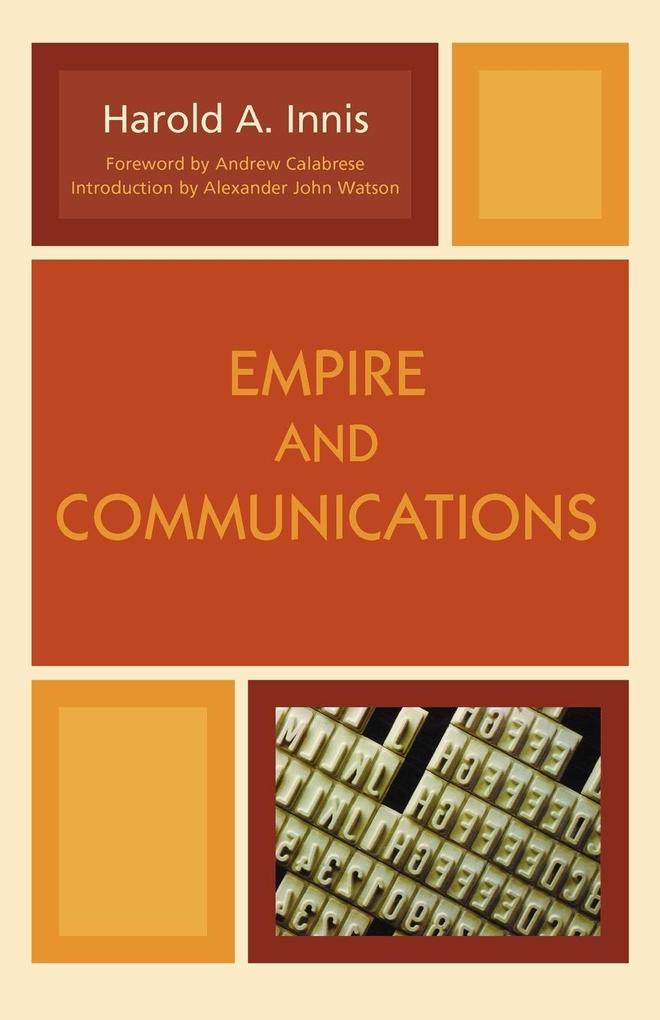I can think of no better inoculation against the rampant disease of present-mindedness in the contemporary world than a careful reading of [Innis's] classic, Empire and Communications. This book was the foundation on which he built his understanding of the contemporary world, in particular his view of the United States of America, its foreign policy, and its effects on other cultures. At the time of Innis's death in 1952, his perspective on the contemporary world seemed radical and far-fetched. When we read his work anew over a distance of more than fifty years, it seems fresh and, indeed, prophetic. -- Alexander John Watson, from the Introduction Innis's writings ... prove understandable and applicable in a variety of modern-day contexts. Technology and Culture, January 2009, Vol. 50 With the benefit of over 50 years of reflection, we can state without opposition that Harold Innis was an important figure in the development of communications studies, and that our students today would do well to read his book, if only to experience the joy of physically grasping and grappling with a difficult publication instead of reading the watered-down version available on Wikipedia. Journal Of International Communication This book teaches us to reflect on how the means and processes of communication have been embedded in imperial power... In a career dedicated to explaining empire, Innis discovered communication and blazed an important trail. The time is ripe to reintroduce and welcome this rewarding book, especially to Innis's [U.S.] neighbors. We live in a moment in which the wages of empire weigh heavily on the world. -- Andrew Calabrese, from the foreword










